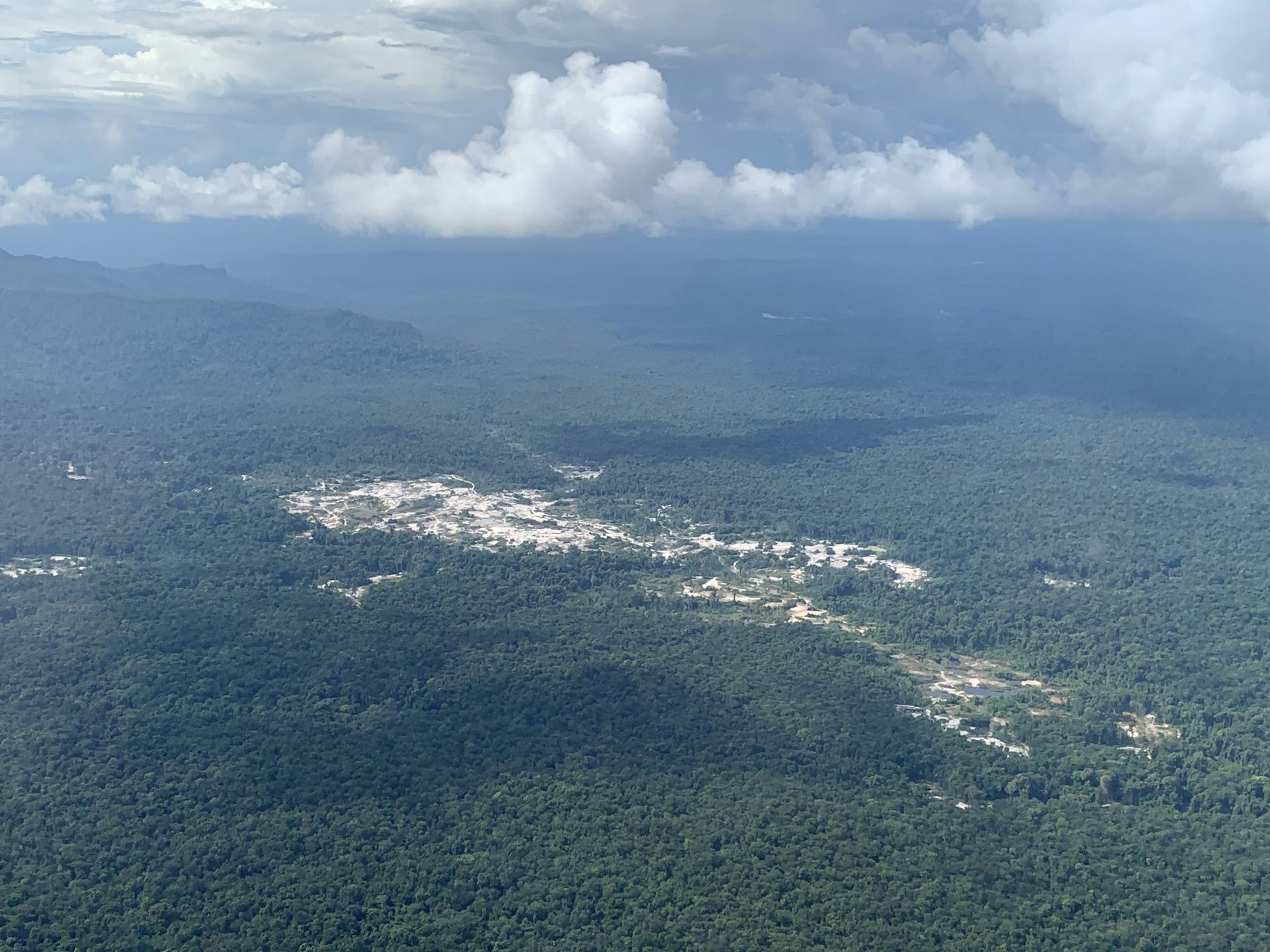As Renewable Energy Demand Rises, Mining for Minerals in the Amazon is at a Critical Point
October 3, 2024
Yolanda Ariadne Collins

Gold mining reduces Amazon forest cover in Guyana. Istel, 2022.
Illegal mining for critical minerals needed for the global renewable energy transition is increasingly driving deforestation in Indigenous lands in the Amazon.
In recent years, these illegal miners, who are often self-employed, mobile and working covertly, have expanded their gold mining operations to include cassiterite or “black gold”, a critical mineral essential for the renewable energy transition. Cassiterite is used to make coatings for solar panels, wind turbines and other electronic devices. Brazil, one of the world’s largest exporters of this mineral, is now scrambling to manage this new threat to its Amazon forests.
The need for developing countries such as Brazil to conserve their forests for the collective global good conflicts with the increasing demand for their resources from international markets. To complicate matters further, both the renewable energy transition and the conservation of the Amazon are urgent priorities in the global effort to arrest climate change.
But escalating deforestation puts these forests at risk of moving from a carbon sink – with trees absorbing more carbon dioxide from the atmosphere than they release – to a carbon source, whereby trees release more carbon dioxide than they absorb as they degrade or are burnt.
. . .
I met with members of communities who were bearing the brunt of the negative effects of small-scale gold mining, such as mercury poisoning and loss of hunting grounds. For decades, mining for gold, which threatens communities’ food supply and traditional ways of life, has been the main driver of deforestation in both countries.
More:
https://www.counterpunch.org/2024/10/03/as-renewable-energy-demand-rises-mining-for-minerals-in-the-amazon-is-at-a-critical-point/
